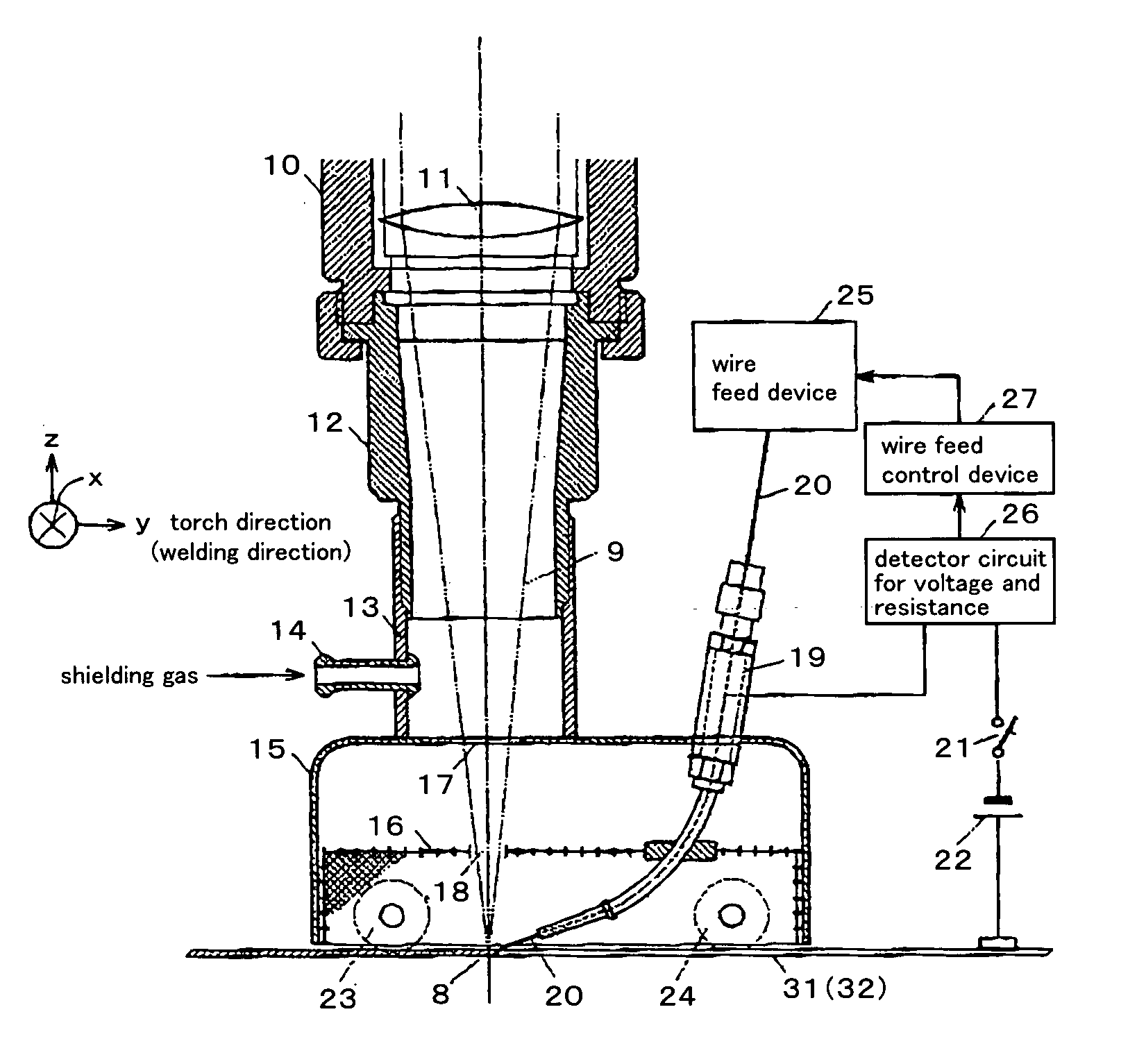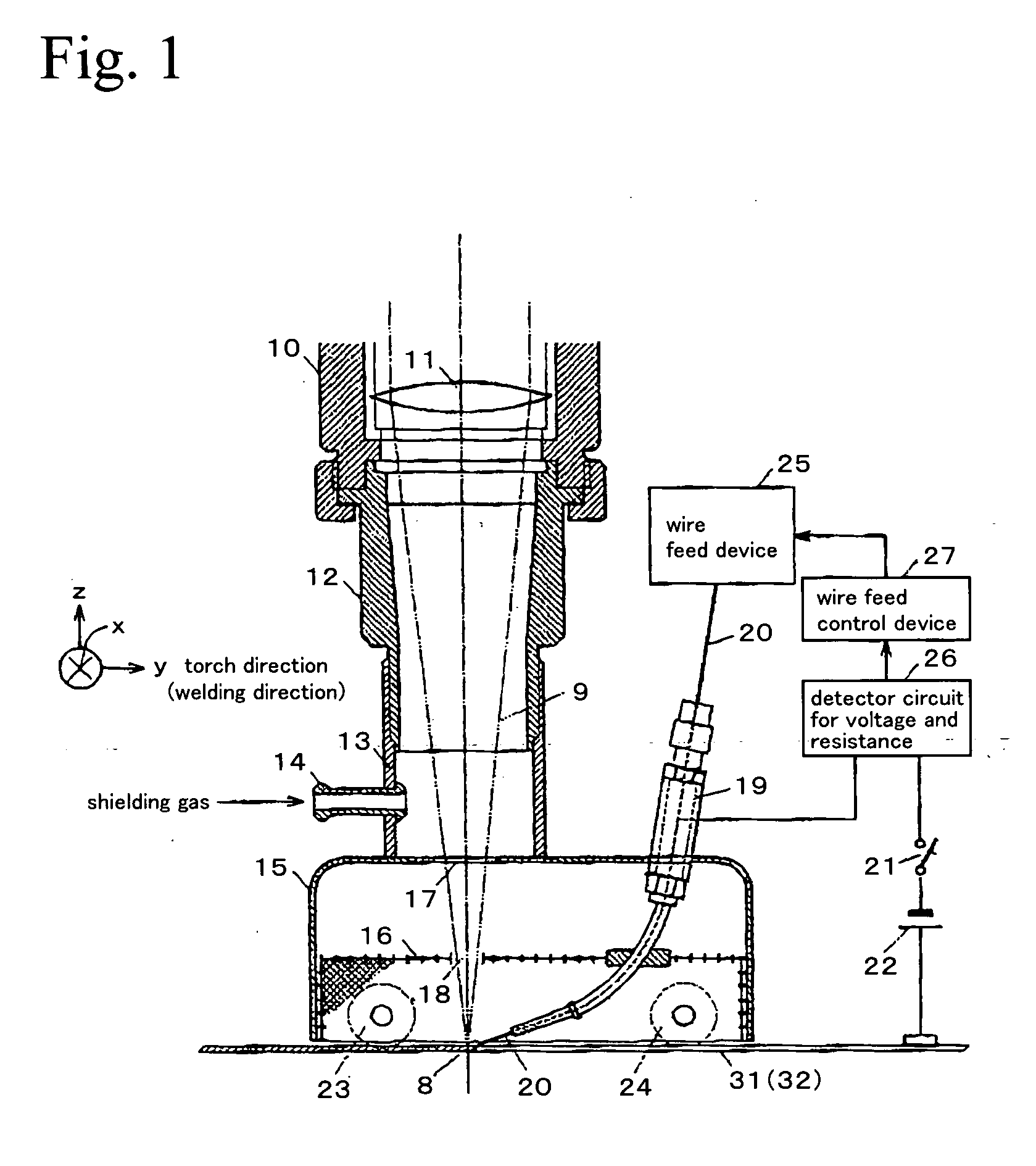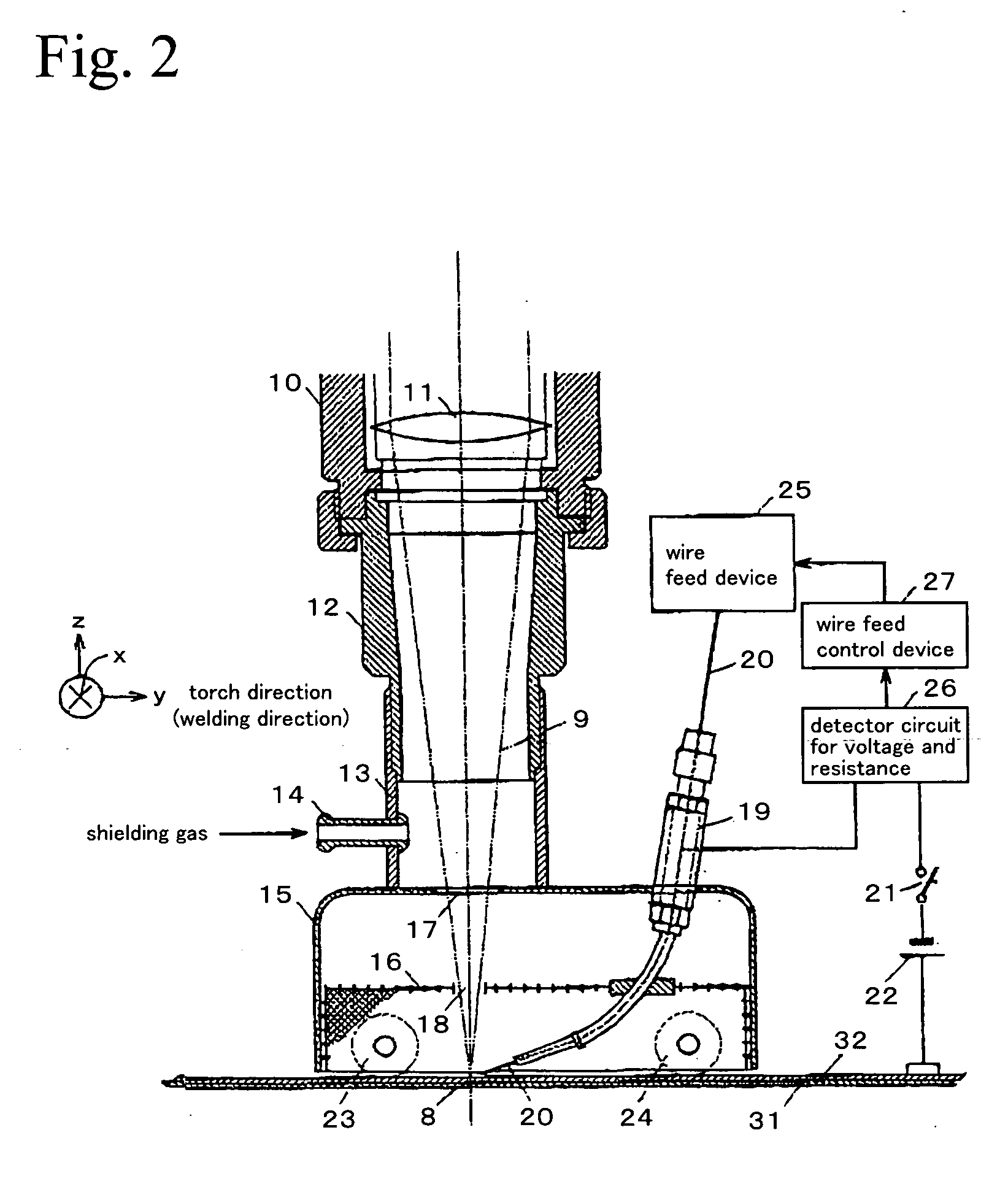Yag laser induced arc filler wire composite welding method and welding equipment
a composite welding and laser induced arc technology, applied in the direction of welding/cutting media/materials, welding apparatus, manufacturing tools, etc., can solve the problems of generating welding defects, unable to obtain excellent joint strength, and yag laser
- Summary
- Abstract
- Description
- Claims
- Application Information
AI Technical Summary
Benefits of technology
Problems solved by technology
Method used
Image
Examples
first embodiment
(1) The First Embodiment
[0037] In a Practical Example of the first embodiment of the present invention, a welding is performed by setting a ratio Vf / V of a feed rate Vf to a welding speed V of the filler wire to be less than 1, that is, setting the feed rate Vf of the filler wire to be less than the welding speed V, resulting in controlling the feed rate Vf of the filler wire to be a rate in which the filler wire does not contact the weld pool. For example, a current value and voltage value between the filler wire and the base materials for welding are detected by a detector circuit (26), whereby a resistance value is calculated. Then, when a ratio Vf / V of a feed rate Vf to a welding speed V of the filler wire is less than 1, when the detected resistance value deviates to a higher value side, the feed rate of the filler wire is increased. On the other hand, when the detected resistance value is deviated to a lower value side, the feed rate of the filler wire is decreased. In this wa...
case 1
(Welding Case 1)
[0050] Base material for welding 31: material A5052, plate thickness 2 mm [0051] Base material for welding 32: material A5052, plate thickness 2 mm, butt joint [0052] YAG laser: output 4 kW, no assist gas (center gas) [0053] Non-load voltage: 20 V, Current: 120 A [0054] Shielding gas: Ar 25 liter / min [0055] Welding speed: 4 m / min, butt joint [0056] Filler wire: standard A5356WY, feed rate: 2 m / min
(Welding Case 2) [0057] Base material for welding 31: material A5052, plate thickness 1 mm [0058] Base material for welding 32: material A5052, plate thickness 1 mm, butt joint [0059] YAG laser: output 3.5 kW, no assist gas (center gas) [0060] Non-load voltage: 20 V, Current: 100 A [0061] Shielding gas: Ar 25 liter / min [0062] Welding speed: 6 m / min, butt joint [0063] Filler wire: standard A5356WY, feed rate: 2 m / min
[0064] As mentioned above, an arc is induced by the plume generated by laser irradiation, whereby arc activation by applying high voltage at a radio-frequency ...
second embodiment
(2) The Second Embodiment
[0065] Moreover, in a Practical Example of the second embodiment of the present invention, the feed rate of the filler wire is controlled, in order to set a ratio Vf / V of a feed rate Vf to a welding speed V of the filler wire to be not less than 1, that is, to set the feed rate Vf of the filler wire to be not less than the welding speed V, thereby controlling the feed rate Vf of the filler wire to be a rate at which the filler wire does not contact the weld pool. For example, current value and voltage value between the filler wire and the base materials for welding are detected, whereby a resistance value between the filler wire and the base materials for welding is calculated. Then, when the detected resistance value deviates to a high value side, feed rate of the filler wire is increased, and when the detected resistance value deviates to a low value side, feed rate of the filler wire is decreased, so as to set the resistance value to be in a setting range...
PUM
| Property | Measurement | Unit |
|---|---|---|
| diameter | aaaaa | aaaaa |
| diameter | aaaaa | aaaaa |
| voltage | aaaaa | aaaaa |
Abstract
Description
Claims
Application Information
 Login to View More
Login to View More - R&D
- Intellectual Property
- Life Sciences
- Materials
- Tech Scout
- Unparalleled Data Quality
- Higher Quality Content
- 60% Fewer Hallucinations
Browse by: Latest US Patents, China's latest patents, Technical Efficacy Thesaurus, Application Domain, Technology Topic, Popular Technical Reports.
© 2025 PatSnap. All rights reserved.Legal|Privacy policy|Modern Slavery Act Transparency Statement|Sitemap|About US| Contact US: help@patsnap.com



